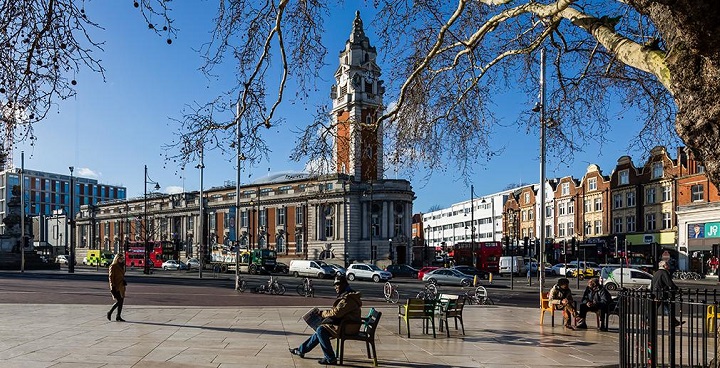
The council has identified more than £99 million in savings over the next four years, savings which are required because of years of structural underfunding from central government, rising demand for vital statutory services and the significantly increased cost of providing them.
Lambeth has experienced unprecedented demand for statutory services such as temporary accommodation, along with adult and children’s social care, which will require £45.9 million of further funding next year for these services alone.
More homeless families than ever need housing by the council, with the number of homeless households supported by Lambeth having increased by 50 per cent in the last two years to 4,600 households. The cost of housing homeless households in overnight accommodation is expected to reach £100 million this year, meaning that the council has spent £30 million more than it budgeted for.
Rising demand and the cost of services that the council has to provide by law, such as adult social care and children’s services, are also driving council overspending – meaning £46.3 million of savings will be needed in 2025/26 and a further £49.8 million of savings will have to be found over the next four years to make sure the council’s budget is balanced.
The budget paper will be considered by the council’s Cabinet on February 24. If agreed by Cabinet the budget will be considered on March 5 at Budget Council.
Cllr Claire Holland, the Leader of Lambeth Council, said: “The cost of providing the vital public services that the most vulnerable in our communities rely on has spiraled, leaving us in an unsustainable financial position following years of chronic underfunding from central government.
“Following years of structural underfunding and a refusal of successive governments to stabilise local authority finances and deliver much needed reform, we are facing an acute situation. We have picked the low hanging fruit. Councils across London are now at breaking point.
“Our ability to cope with the situation has been worn down by fourteen years of austerity policies and a succession of government failures and delays in delivering much needed reforms. That includes failures to address the promised reforms to adult social, a failure to build the housing this country so desperately needs and a failure to properly fund front-line services our residents depend on.
“This is now the worst funding crisis this council, and others across the country, have ever faced. We need to be open with residents that saving this amount isn’t possible without having an impact on the services people rely on.
“Where possible, we have focused on finding savings through being more efficient, putting forward income generating proposals, and increasing our fees and charges in a way that’s fair within the current challenging financial situation.”
In line with most councils and to meet the need to fund essential services, Lambeth will raise Council Tax by 2.99 per cent and the Adult Social Care precept by 2 per cent. In addition to the Council Tax premium collected on empty homes, the council will be introducing a Council Tax premium on second homes for 2025/26.
Cllr Holland said: “Although this will maintain Lambeth’s Council Tax rate as one of the lowest in the UK, we know significant challenges remain for some of our most vulnerable residents. Support for the most financially vulnerable will continue to be available through the Lambeth’s Council Tax Support scheme, which remains one of the more generous in London, alongside the council’s Cost of Living support programme.”
Lambeth Council welcomed the government’s finance settlement at the end of last year which provided some extra funding, but not enough to address the council’s huge pressures.
Cllr Holland said: “The local government financial settlement is an essential first step in starting to rebuild local services that have been stripped away by austerity decisions by national governments over 14 years.
“We will continue to work with government to address the financial challenges local government faces. This is particularly acute for councils in London such as Lambeth since we are on the frontline and bear the brunt of the national housing crisis.”
In addition to these savings, housing services – which are funded through a separate council housing account – are under major pressure due to years of underfunding through a combination of rent freezes and caps imposed by central government, the removal of improvement funding, ageing council estates, and the cost of extra fire and building safety work needed following the Grenfell tragedy.
The council is in discussions with the Ministry for Housing, Communities and Local Government to determine what actions will need to be taken to balance the budget over the next few years and how services like repairs, funding improvements such as new windows and doors and cleaning and improving estates can continue to be delivered.
Cllr Holland said: “Delivering a balanced budget is incredibly challenging in the face of our budget situation, but doing so is vital if we are to preserve and protect the essential services that our most vulnerable residents rely on.”
To read the full report visit moderngov.lambeth.gov.uk.



